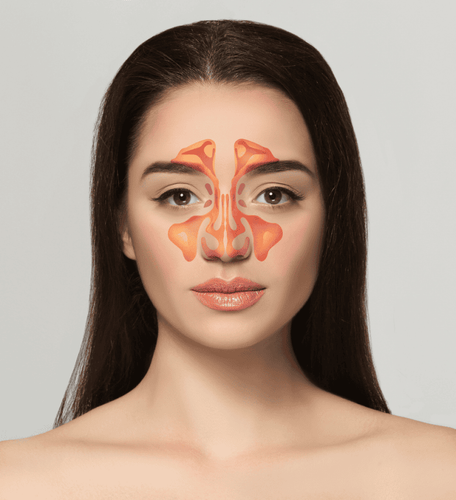This is an automatically translated article.
Video content is professionally consulted by Dr., BS. Nguyen Van Dinh, Head of the Respiratory - Asthma - Allergy - Clinical Immunology Unit - Vinmec Times City International General HospitalSinusitis is a disease showing an infection of the mucous membrane lining the inside of the sinuses caused by bacteria, viruses or allergies, leading to edema, narrowing the diameter of the sinus openings, leading to sinusitis. to symptoms of purulent discharge, stagnation of fluid in the nasal cavity. Patients can have acute or chronic sinusitis.
Allergic rhinitis is a disease that represents an immune system response in response to specific substances called allergens. Examples of common allergens are pollen, pet dander, house bugs,... Common symptoms of allergic rhinitis include: Sneezing, clear runny nose, stuffy nose, itchy nose, cough, feeling of phlegm in the throat, itchy eyes, watery eyes...
Usually, sinusitis is the result of a prolonged flu episode or severe allergic rhinitis. To distinguish allergic rhinitis, it is necessary to rely on the following criteria:
On the nature of the disease: Allergic rhinitis is atopic and has genetic factors because if one parent has allergic rhinitis, the possibility The chance of transmitting the disease to the child is at 30%, and if both parents have a history of the disease, the rate of infection is up to 50%. Meanwhile, sinusitis is a disease caused by damage, infection, bacteria and harmful fungi in the sinus cavities and nasal cavity. Acute sinusitis stems from allergies, while chronic sinusitis is not related to genetic factors. About symptoms: Allergic rhinitis and sinusitis both share the same 2 symptoms, causing itchy and stuffy nose. In addition, the two diseases are also differentiated based on different manifestations such as: People with allergic rhinitis frequently sneeze uncontrollably; runny nose, transparent, odorless; sore throat causing cough; itchy eyes, red and watery eyes, itchy ears. When chronic also causes olfactory disturbances, snoring, ringing in the ears, headaches, ... this is easily confused with allergic rhinitis. And patients with sinusitis have symptoms of a yellow-green nasal discharge, thick and overflowing into the throat; decreased sense of smell causing poor smell; facial pain, headache, earache, toothache in the upper jaw; fever; persistent cough and bad breath. About disease complications: Contrary to sinusitis, allergic rhinitis is a benign disease, not life-threatening. However, long-term allergic rhinitis and if not properly treated can lead to allergic rhinitis, chronic sinusitis, and nasal polyps. Long-term sinusitis has the risk of leading to complications of otitis media, bronchitis, encephalitis, posterior eye abscess... Regarding imaging: When taking X-ray, allergic rhinitis does not give pictures. markedly different from X-ray to diagnose sinusitis, which will show pus-filled sinus cavities. Allergic rhinitis and sinusitis are two diseases with similar symptoms, so each person needs to have knowledge to distinguish these two diseases to prevent and treat more effectively.
Please dial HOTLINE for more information or register for an appointment HERE. Download MyVinmec app to make appointments faster and to manage your bookings easily.














